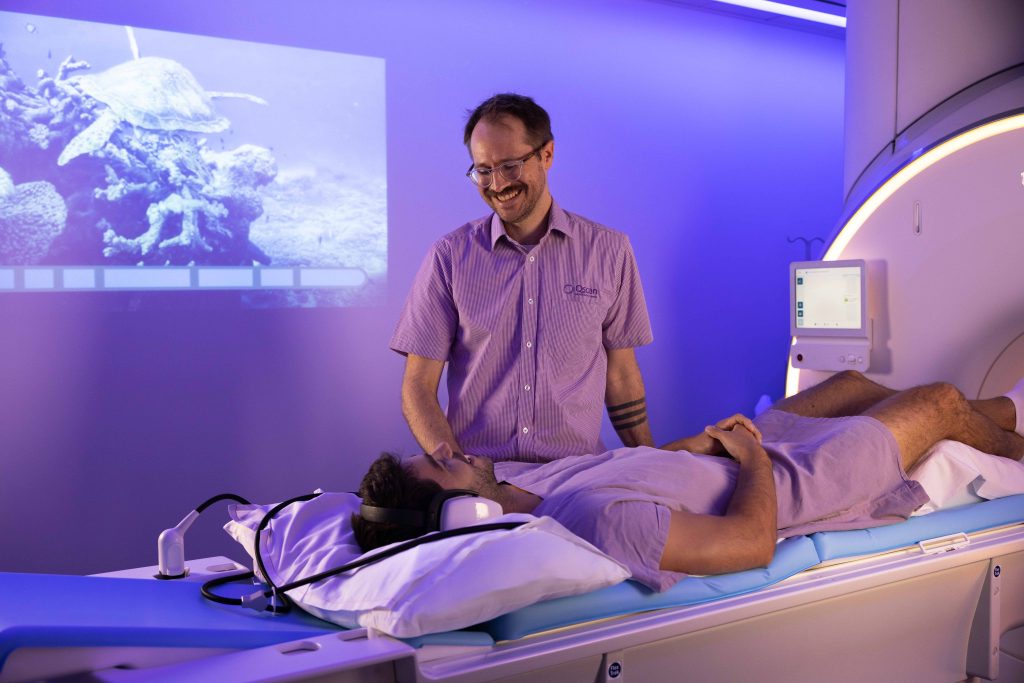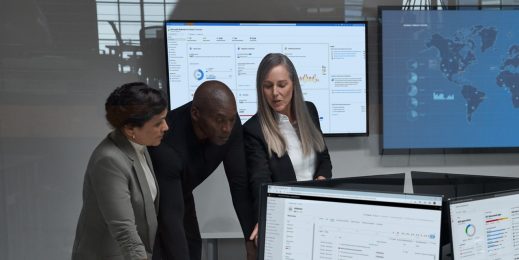
High-resolution results: Qscan Group enhances the productivity of its radiologists using Microsoft’s cloud and AI capabilities
Qscan Group is one of Australia’s leading medical diagnostic imaging providers, employing almost 1,500 people – including nearly 170 radiologists – and serving roughly 2 million patients every year across its six brands. The company began with a few radiology clinics in Brisbane and has since expanded to 82 clinics across Queensland, NSW, the ACT, South Australia, Western Australia and Tasmania.
Despite its rapid growth and success, Qscan Group isn’t immune to the challenges radiology companies face. The most pressing is a global shortage of radiologists, a crisis stemming from the extensive training required for the profession, and exacerbated by COVID-related burnout and increasing demand for diagnostic imaging.

According to Simon Button, Chief Technology Officer at Qscan Group, this shortage won’t be alleviated overnight, so it’s crucial to optimise the productivity of available radiologists. “When it comes to the radiologist’s experience, every second counts. If they have to wait an extra second to stream complex images onto one of their diagnostic monitors, that’s one second of lost productivity,” he explains.
“Over the last few years, we’ve spent an incredible amount of time, effort and dollars in transforming the radiology reporting experience to be the best in the market. That helps us drive a constant productivity improvement regime to allow us to do more with the same resources.”
Data privacy, security and compliance are also paramount for Qscan Group, given the large amount of sensitive patient information it handles. With plans to establish a London hub for teleradiology, Qscan Group must ensure imaging is protected from cyber threats as it’s transferred around the world for efficient expert diagnosis.
These challenges became a catalyst for change, leading Qscan Group down the path of digital transformation in partnership with Microsoft.
Establishing strategic synergy with Microsoft
Qscan Group’s decision to partner with Microsoft was a strategic one. According to Button, the primary allure was Microsoft’s comprehensive cloud offering tailored to healthcare.
“It’s a one-stop shop that enables us to execute our technology and business strategies, and the ease of integration allows us to innovate much faster,” he says.
Microsoft’s acquisition of Nuance in March 2022 reinforced the company’s decision. Nuance’s PowerScribe One solution has quickly become instrumental in enhancing the radiology reporting experience at Qscan Group. By integrating cloud, artificial intelligence (AI) and data analytics capabilities into the workflow, the solution increases the efficiency and diagnostic accuracy of radiology reporting. It also provides real-time clinical guidance and decision support to radiologists, improving patient outcomes.
“For instance, if a clinician accidentally reports the wrong laterality, PowerScribe One picks that up in real time,” says Button. “It really helps ensure we provide a quality report as quickly as possible.”
Since deploying PowerScribe One in July 2023, Qscan Group has seen a high single-digit percentage increase in radiologists’ productivity. This has translated to being able to keep up with higher demand and enabling our radiologists to assist more patients.
“We’re quite unique as a business in that our radiologists are paid based on their productivity,” says Button. “So, the more productive they can be, the higher their salary is. It’s also a win for our patients because we can do more with the same level of resources.”
Qscan Group’s gradual transition from an on-premises environment to Microsoft Azure and its upgrade to Microsoft 365 E5 – with the help of Microsoft partners Arinco and Data#3 – have also been pivotal in its digital transformation.
“We’ve seen some significant improvements in our cybersecurity posture and our overall technology performance by leveraging the Microsoft ecosystem,” says Button. “It ensures that we have a high-performing, yet safe and secure organisation that really prides itself on treating patient data with the utmost respect and integrity.
“For us, the next wave of enhancing the patient experience will focus on enabling them to digitally check in to one of our clinics, as opposed to queueing up at reception and manually filling out forms. Microsoft will help drive how we reimagine this experience from a technology perspective.”
Button is enthusiastic about the potential of AI to provide an even better experience for Qscan Group’s employees and patients. From improving the quality of radiology reports and streamlining the process for acquiring images, he believes the latest AI advances will support radiologists and other teams in the organisation.
“We run large call centres that take 3,000 calls a day to book patients in, so there’s a great opportunity for generative AI and conversational AI to help transform the experience we offer both our patients and our valued contact centre agents,” Button adds.
“From a support services perspective, we’ve got large teams that help drive our business in many different dimensions, right down to how we’re billing our patients. AI could help optimise those processes by mining complex data and making sense of it, like checking report contents against what we’ve billed Medicare to make sure it’s correct.”
Interestingly, Qscan Group has already explored the ability of generative AI for several use cases OpenAI’s ChatGPT platform. Button says the company plans to deploy Microsoft 365 Copilot to optimise this process – and others – at scale. One of the first use cases will be to utilise Smart Impressions natively within PowerScribe, a new feature launched today by Microsoft.
“We’re taking a very considered approach to AI so that we can target very specific use cases where we see very specific benefits,” he explains.
As Qscan Group continues its digital transformation journey, its collaboration with Microsoft and its strategic adoption of AI will enable it to further enhance the patient experience, redefine radiology reporting, and set new benchmarks in healthcare technology.














